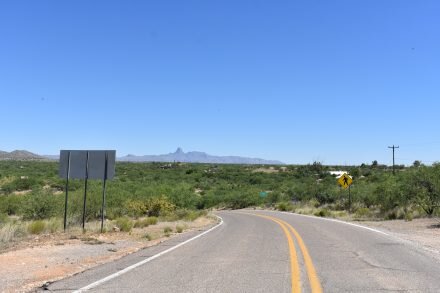THREE ROADS TO ALTAR VALLEY
THREE ROADS TO ALTAR VALLEY
Part I
November 2020
by Jaclyn Sipovic
My car had no radio. The air conditioning no longer worked. The week prior I opened the windows to get some air and now they would no longer close. There were leaks in every line I could no longer keep fixing. But I got in my car that afternoon because I thought I was breaking down.
I had recently moved into an old row house where I did not have cell service. The internet in my neighborhood was going down daily. The libraries and other forms of free air conditioning I had planned to rely on remained closed. Like millions of others, I could not get a hold of the unemployment office. And every day felt the same: I woke up, waited for the whistle stop, the rumble and screech of steel on steel, watched the bright gap flicker between boxcars before stepping outside trying to get a bar of service and try again.
It was June, Tucson, Arizona, unrelenting, hot. When the better-luck-next-time recording queued, I slumped against the corner of my house, let the sweat soak through my shirt, held the sob in my throat like a scrap of rebar and started scrolling: the Border Wall continued to be built, Quitobaquito drained, migrants detained, protests staged, organizers arrested. Even after the tears welled and my vision blurred and I could no longer see a goddamn thing, I kept scrolling.
“What do you do when your world starts to fall apart?” Anna Lowenhaupt Tsing begins Mushroom at the End of the World: On the Possibility of Life in Capitalist Ruins, a book I had been calling The Mushroom Cloud at the End of the World for some time without having read it and without realizing my mistake. Turns out there is only one mention of the bomb in the whole book: “It is said,” Tsing writes in the prologue, “that the first living thing to emerge from the blasted landscape was a matsutake mushroom.” My own slip toward hopelessness, I now imagine Tsing writing not into or against, but out of.
I didn’t know how Altar Valley got its name, but that is where I decided to go. At the gas station in Robles Junction, where State Route 86, the east-west highway cutting through Tohono O’odham Nation intersected with State Route 286, the north-south road to Sasabe, I poured over my atlas. I scanned for mesas, anything that might resemble a table, not certain whether to search for simile or something more sacred. I traced the blue line called the Altar River, but it began south of the border, and drained south; Altar Valley drained north. To the west, I could see the roadless expanse that, on one side of the border, was called the Barry M. Goldwater bombing range and on the other, the Gran Desierto de Altar Biosphere ReserveI could pinpoint the small black dot called Altar a hundred miles south: an old Spanish mission, now a major stop for migrants on their journey north. But still, I could not determine an origin.
Contaminated diversity, Tsing calls it. Indeterminacy. Entangled precarity. The histories “ugly and otherwise” of encounter. The dark glass bottom of the question: what was I doing here? What were any of us doing here? And the possibilities contained in the fact that we were.
In another year, I might have been in the back of a university van with the field studies crew, AC blasting, mapping the landscape with the words each of us knew how to speak: the names of mountains and roads, plants and their histories, memories of here, there, spanning last year to last century. Probably closer to what I was doing now was camping. Or more specifically, haunting dirt roads for days at a time with no place to be, something I had done enough times and over long enough periods to know this was no escape from my own walls and ceilings, but a desire to move through more immediate unknowns. Where would I go? Who would I meet?
It was getting dark when I finally stopped the car, though the silhouette of the Baboquivari range was darker. I opened the door and a jug of water fell out and spilled into the dirt. I sat on the edge and drank what was left. In the distance, I could hear the crunch of tires crawling over gravel. I locked the doors, though there was no longer sense in that: the windows would stay open. I curled up in the trunk, between hatchback and spare tire, breathing in black rubber and creosote, closed my eyes, started to listen.
Jaclyn Sipovic is an MFA candidate in nonfiction at the University of Arizona.


